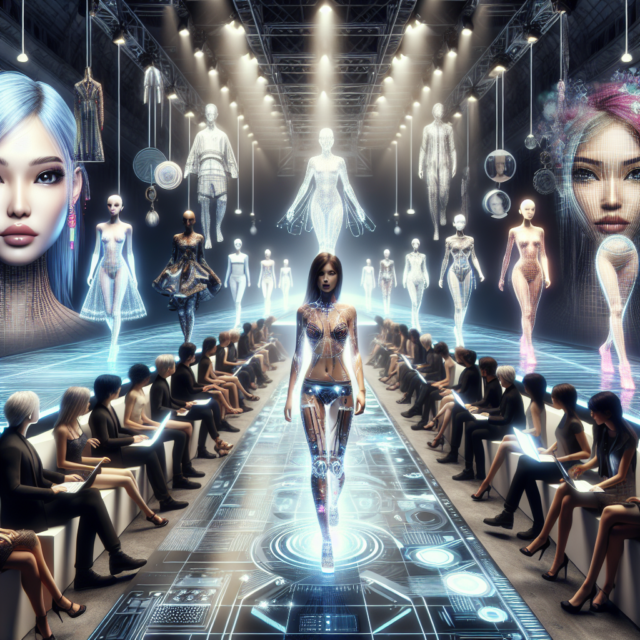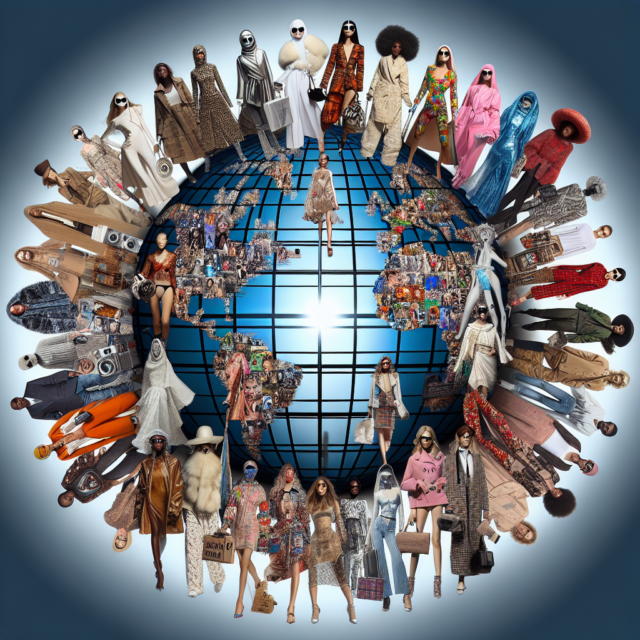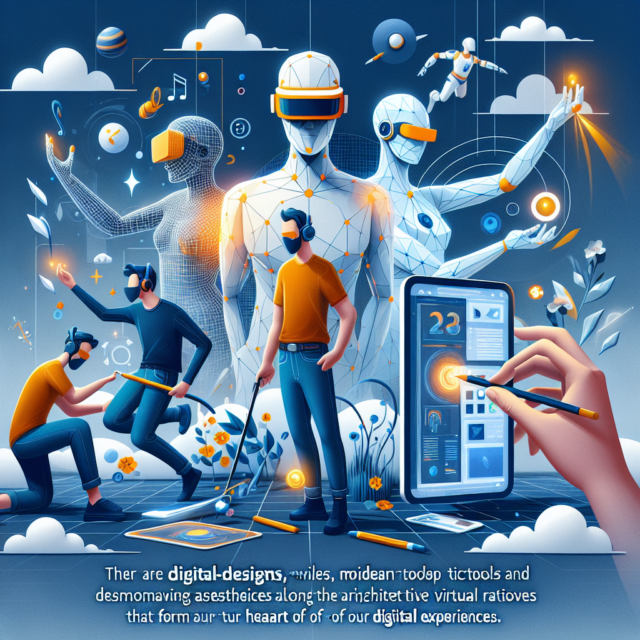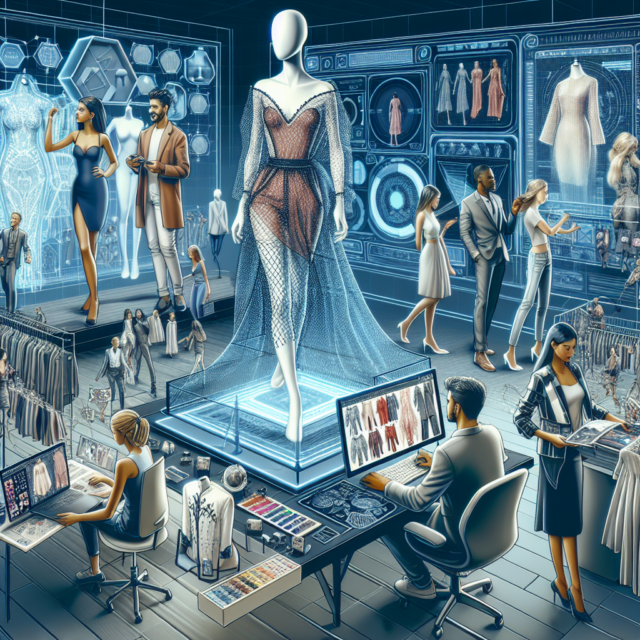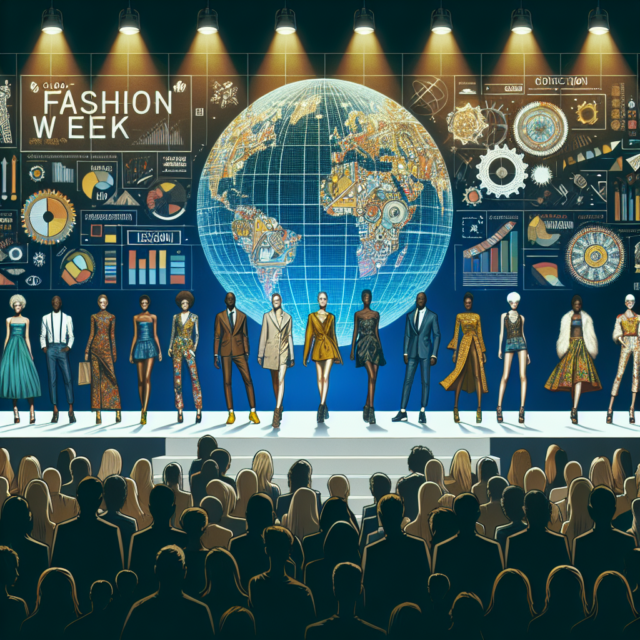Exploring the Rise of Digital Fashion Supermodels
In recent years, the fashion industry has witnessed a significant transformation with the rise of digital fashion supermodels. These virtual personalities are not only reshaping the way fashion is created and consumed but are also challenging traditional notions of beauty and celebrity. As technology continues to evolve, digital fashion icons are gaining prominence, offering new opportunities and challenges for designers, brands, and consumers alike. This article explores the emergence of digital fashion supermodels, the technological advancements driving this shift, and the profound impact these virtual models have on the fashion industry.
The Emergence of Digital Fashion Icons
The concept of digital fashion icons is not entirely new, but their influence has grown exponentially in recent years. These virtual models are meticulously crafted using advanced computer graphics and artificial intelligence, resulting in hyper-realistic representations that often rival their human counterparts. Initially, digital models were used for specific campaigns or editorial shoots, but their roles have expanded significantly, with some even gaining massive followings on social media platforms.
One of the most notable digital fashion models is Lil Miquela, a computer-generated influencer who has amassed millions of followers on Instagram. Her presence blurs the lines between reality and fiction, as she engages with audiences just like any human influencer. This phenomenon has opened up a new realm of possibilities for brands looking to tap into the digital landscape, allowing them to reach younger, tech-savvy audiences who are increasingly demanding innovative and immersive experiences.
Another aspect contributing to the rise of digital fashion icons is their ability to transcend traditional barriers in the fashion industry. Unlike human models, digital models are not constrained by age, size, or ethnicity, allowing for more inclusive representations. This shift is particularly significant at a time when the fashion industry is under pressure to embrace diversity and inclusivity, providing a platform for different narratives and perspectives.
Moreover, digital fashion models offer a level of creative freedom that is unparalleled. Designers can experiment with avant-garde styles and futuristic concepts without the limitations imposed by the physical world. This has led to a surge in virtual fashion shows and digital collections, where boundaries are pushed, and imagination knows no limits. As a result, digital models have become an integral part of the fashion ecosystem, providing a fresh canvas for artistic expression.
The emergence of digital fashion icons is also closely linked to the rise of virtual reality (VR) and augmented reality (AR) technologies. These tools enable consumers to interact with digital models in immersive environments, further blurring the lines between the real and virtual worlds. As these technologies become more accessible, the demand for digital fashion experiences is expected to grow, providing new opportunities for brands to engage with their audiences in innovative ways.
In essence, the rise of digital fashion supermodels represents a shift towards a more digital and interconnected fashion landscape. As these virtual icons continue to gain traction, they are likely to redefine traditional industry norms and pave the way for new forms of creativity and expression.
Technology’s Role in Fashion’s Digital Shift
Technology has been a driving force behind the fashion industry’s digital transformation, enabling the creation and proliferation of digital fashion supermodels. At the heart of this shift are advancements in 3D modeling and rendering software, which allow for the creation of lifelike digital avatars. These tools provide designers with unprecedented control over every aspect of a model’s appearance, from skin texture to facial expressions, resulting in highly realistic and customizable virtual representations.
Artificial intelligence (AI) also plays a crucial role in the development of digital fashion icons. AI algorithms can analyze vast amounts of data to predict trends, optimize designs, and even generate original fashion concepts. By leveraging AI, designers can create digital models that not only look realistic but also resonate with consumers on a deeper level, tapping into their preferences and behaviors.
In addition to AI, the integration of virtual reality (VR) and augmented reality (AR) technologies has further propelled the digital shift in fashion. These immersive technologies enable consumers to experience fashion in entirely new ways, from virtual try-ons to interactive fashion shows. Digital models serve as the perfect vehicle for these experiences, offering a seamless blend of technology and creativity that captivates audiences.
Blockchain technology is another emerging tool that is shaping the digital fashion landscape. By providing a secure and transparent way to authenticate digital assets, blockchain allows for the creation of digital fashion items that can be bought, sold, and traded in virtual environments. This has given rise to the concept of digital fashion ownership, where consumers can own exclusive virtual garments and accessories, often modeled by digital avatars.
The rise of social media platforms has also been instrumental in the proliferation of digital fashion models. Platforms like Instagram and TikTok provide a global stage for virtual influencers to showcase their unique styles and connect with audiences. These digital personas often engage with followers through captivating content and interactive experiences, fostering a sense of community and belonging in the digital realm.
As technology continues to evolve, the potential for digital fashion models is limitless. From AI-driven design processes to immersive virtual experiences, technology is reshaping the fashion industry in profound ways. As a result, digital fashion icons are not just a passing trend but a fundamental aspect of the industry’s future, offering new possibilities for creativity, engagement, and innovation.
The Impact of Virtual Models on the Industry
The rise of digital fashion supermodels has had a profound impact on the fashion industry, challenging traditional norms and reshaping the way fashion is produced, marketed, and consumed. One of the most significant effects is the democratization of fashion, as digital models provide a platform for more diverse and inclusive representations. This shift is particularly important in an industry that has long been criticized for its lack of diversity and representation.
Digital fashion models also offer a sustainable alternative to traditional fashion practices. By eliminating the need for physical production and logistics, virtual models reduce the industry’s carbon footprint and minimize waste. This aligns with the growing demand for sustainable and ethical fashion, as consumers become more conscious of the environmental impact of their choices.
The use of digital models has also led to a more agile and efficient fashion supply chain. Brands can quickly adapt to changing trends and consumer preferences by leveraging digital tools and technologies. This agility allows for more responsive and personalized fashion experiences, as brands can tailor their offerings to meet the needs and desires of their audiences in real-time.
Moreover, digital fashion models have opened up new revenue streams for brands and designers. The sale of digital fashion items, such as virtual garments and accessories, has become a lucrative market, with consumers willing to invest in exclusive digital assets. This has led to the rise of digital fashion marketplaces and platforms, where brands can showcase and sell their digital creations to a global audience.
The impact of digital fashion models extends beyond the fashion industry, influencing other sectors such as entertainment, gaming, and technology. As digital avatars become more integrated into these industries, they offer new opportunities for collaboration and innovation. This cross-industry convergence is likely to drive further advancements in digital fashion, as brands explore new ways to engage with audiences and create immersive experiences.
Despite the many benefits, the rise of digital fashion supermodels also presents challenges for the industry. The increasing reliance on technology raises questions about authenticity, creativity, and the role of human models in the future of fashion. As the industry navigates these challenges, it will be crucial to strike a balance between embracing digital innovation and preserving the human touch that has long been at the heart of fashion.
The rise of digital fashion supermodels marks a new era in the fashion industry, where technology and creativity converge to redefine traditional norms and practices. From the emergence of digital fashion icons to the transformative role of technology, these virtual models offer a glimpse into the future of fashion, where diversity, sustainability, and innovation take center stage. As the industry continues to evolve, digital fashion supermodels will undoubtedly play a pivotal role in shaping the fashion landscape, offering new opportunities and challenges for brands, designers, and consumers alike. As we move forward, it will be essential to embrace this digital shift while maintaining the core values that have long defined the fashion industry, ensuring a future that is both inclusive and sustainable.







